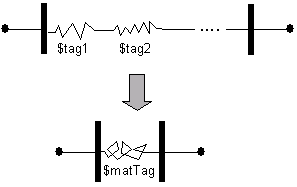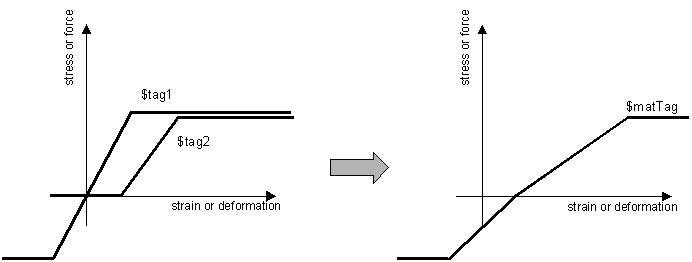Series Material: Difference between revisions
Jump to navigation
Jump to search
(New page: This command is used to construct a series material object made up of an arbitrary number of previously-constructed UniaxialMaterial objects. {| | style="background:yellow; color:black;...) |
No edit summary |
||
| Line 23: | Line 23: | ||
Code Developed by: <span style="color:blue"> Micheal Scott, Oregon State University</span> | Code Developed by: <span style="color:blue"> Micheal Scott, Oregon State University</span> | ||
Images Developed by: <span style="color:blue"> Silvia Mazzoni </span> | |||
Revision as of 18:03, 28 September 2009
This command is used to construct a series material object made up of an arbitrary number of previously-constructed UniaxialMaterial objects.
| uniaxialMaterial Series $matTag $tag1 $tag2 ... |
| $matTag | integer tag identifying material |
| $tag1 $tag2 ... | identification tags of materials making up the material model |
The parallel material is represented graphically:

In a parallel model, strains are equal and stresses and stiffnesses are additive:

Code Developed by: Micheal Scott, Oregon State University
Images Developed by: Silvia Mazzoni